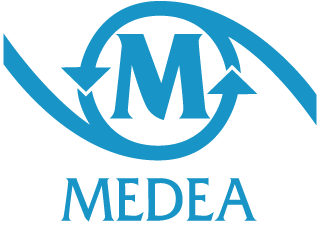
PUREMIND: Personal natUral environment-gene-gut-bRain interactions based Ecosystem for prevention of Mental Illness in childreN and aDolescents.
Five major Non Communicable Diseases (NCDs)—diabetes, cardiovascular disease, cancer, chronic respiratory disease, and MHD—account for 86% of deaths and 77% of disease burden in the WHO European region, and for 71% of global deaths. MHD is unique amongst these NCDs as it has a complex bi-directional relationship with the other four—it may contribute to other NCDs, or other NCDs could contribute to MHD, which, in turn, may further aggravate the primary NCD, creating a vicious circle. Current data shows 1 in 8 people in the world and 84 million people in Europe are affected by MHD, incurring an estimated global cost of $5 trillion and more than €600 billion in Europe. Therefore, preventing MHD is a crucial health priority.
Accelerating the translation of the WHO’s agenda “No health without mental health” and the European Health Union’s (EHU) Mental Health Action Plan, PUREMIND will deliver the first-ever Integrated Mental Healthcare Ecosystem (IMHE) that will take a life-course approach for the prevention of Mental Health Disorders (MHD), addressing pressing priorities at key transitional stages of human development:
- Infancy and toddler (0–4 years): predicting within the maximal brain plasticity period which infants willdevelop Autism Spectrum Disorder (ASD) and/or Attention-Deficit/Hyperactivity Disorders (ADHD), twomost common neurodevelopmental conditions associated with vulnerability for developing later MHD.
- Childhood (5–10 years), adolescence (11–18 years), and young adulthood (19–25 years): empowering them/their parents/carers to early identify and self-regulate symptoms of anxiety and depression, the two most prevalent mental health issues, to allow for age-specific contextual preventive actions against MHD.
- Effective and accessible community-based care services at the point-of-need, transcending intra- and inter-country mental healthcare service fragmentations and inequalities.
In collaboration with:
1. Medea Srl (Italy)
2. Orthokey Srl (Italy)
3. University of Southampton (United Kingdom)
4. The University of Exeter (United Kingdom)
5. Universitatea De Medicina Si Farmacie Carol Davila Din Bucuresti (Romania)
6. Technische Universitaet Chemnitz (Germany)
7. Universidad Politecnica De Madrid (Spain)
8. Data Analytics for Industries 4 0 SL (Spain)
9. Jimma University (Ethiopia)
10. Ethniko Kentro Erevnas Kai Technologikis Anaptyxis (Greece)
11. University Of Galway (Ireland)
12. Aberystwyth University (United Kingdom)
13. International Centre for Diarrhoeal Disease Research Bangladesh (Bangladesh)
14. Servicio Madrileno De Salud (Spain)
15. Fundacion Para La Investigacion E Innovacion Biosanitaria De Atencion Primaria (Spain)
16. Fundacion Para La Investigacion Biomedica Hospital Infantil Universitario Nino Jesus (Spain)
17. Fundacion Para La Investigacion Biomedica Del Hospital Universitario Clinico San Carlos (Spain)
18. Alma Mater Studiorum – Università Di Bologna (Italy)
19. Microlink PC (United Kingdom)
20. Universita Degli Studi Di Bari Aldo Moro (Italy)
21. Engineering – Ingegneria Informatica Spa (Italy)
22. The Provost, Fellows, Foundation Scholars & The Other Members of Board, of the College of the Holy & Undivided Trinity of Queen Elizabeth Near Dublin (Ireland)
23. Mandat International Alias Fondation Pour La Cooperation Internationale (Switzerland)
24. Archimede Solutions Sarl (Switzerland)
Details

